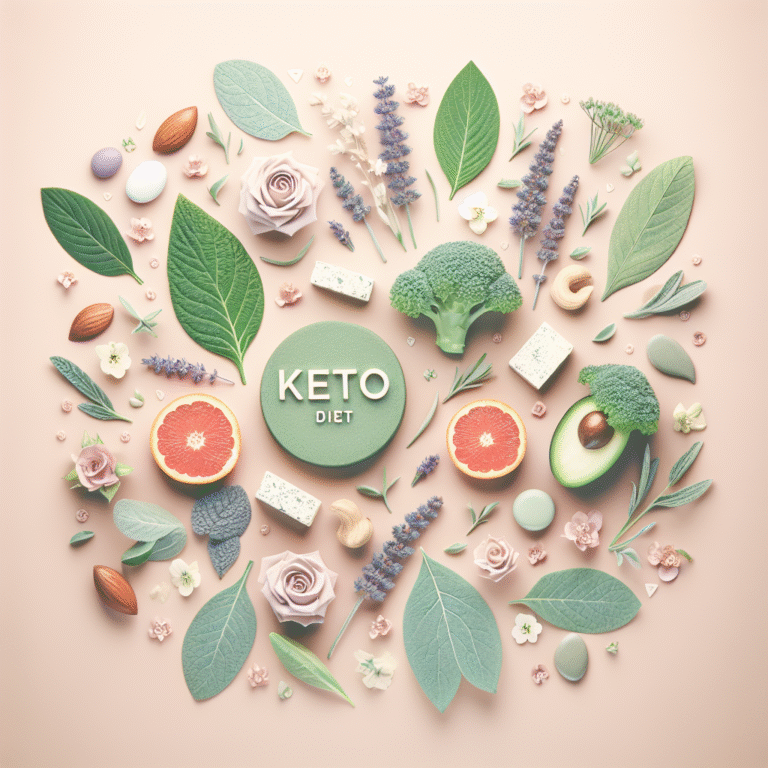What Eating Only Raw Foods for a Week Did to My Body

Embarking on a journey into the world of raw foodism can be as enlightening as it is challenging. The decision to consume only raw, unprocessed foods for a week is often fueled by the desire for better health, more energy, or a curiosity about the benefits touted by raw food enthusiasts. This experience promises a closer connection to natural, nutrient-rich foods, but it also demands a mindful approach to diet and lifestyle changes.
The Raw Food Diet Explained
The raw food diet centers around the consumption of uncooked, unprocessed, and often organic foods. Proponents argue that cooking can diminish the nutritional value of food and destroy beneficial enzymes necessary for digestion. Thus, the diet primarily includes fruits, vegetables, nuts, seeds, and sprouts.
What Constitutes Raw?
- Uncooked: Foods are not heated above 118°F (48°C), preserving their natural enzymes, which are believed to aid in digestion and nutrient absorption.

- Organic: Many raw foodists prefer organic options to avoid pesticides and additives, promoting a cleaner intake of nutrients.
- Varied Sources: The diet isn’t limited to just fresh produce; it also includes dehydrated foods and fermented items like kimchi or sauerkraut, which add flavor and probiotics to the diet.
Nutritional Advantages
1. Higher Nutrient Intake: Raw foods retain vitamins and minerals that are often lost during cooking. For instance, vitamin C found in fruits and vegetables is particularly susceptible to heat damage.
2. Improved Digestion: The abundance of natural enzymes in raw foods aids in breaking down food more efficiently, which may help alleviate digestive issues like bloating and constipation.
3. Increased Energy Levels: Many report feeling more energetic due to the high nutrient density and the absence of processed foods, which can lead to energy crashes.
Initial Physical Changes
Transitioning to a raw food diet can lead to immediate physical changes, both positive and challenging. My first few days on the diet brought about noticeable differences in how my body felt and functioned.
Increased Energy
One of the most remarkable changes was a surge in energy. The natural carbohydrates from fruits and vegetables provided a steady release of energy, unlike the spikes and crashes associated with processed sugar. This sustained energy helped in maintaining productivity throughout the day without the usual afternoon slump. For instance, instead of reaching for a caffeinated beverage, I found myself naturally alert and focused.
Digestion and Detoxification
- Improved Digestion: The raw diet is inherently high in fiber, which promoted regular bowel movements and a feeling of lightness. This was a stark contrast to my previous diet, which often left me feeling sluggish.
- Detox Symptoms: Initially, I experienced mild headaches and fatigue, a common detoxification response as the body adjusts to the absence of processed foods. These symptoms, often referred to as a “healing crisis,” are usually temporary and a sign that the body is purging toxins.
Emotional and Mental Effects
Diet changes can significantly impact mental and emotional well-being. The raw food diet was no exception, with both positive and negative effects manifesting over the week.
Mood Fluctuations
Initially, I noticed an increase in mood swings. The sudden shift in diet can affect neurotransmitter levels, leading to irritability or anxiety. However, as my body adapted, I found my mood stabilizing and even improving, likely due to the increased intake of omega-3 fatty acids from nuts and seeds. These fatty acids are essential for brain health and can influence mood and cognitive function.

Mental Clarity
As the week progressed, I experienced enhanced mental clarity. The elimination of processed foods, which can lead to brain fog, seemed to sharpen my focus and cognitive function. This mental clarity was a surprising and welcome benefit, enhancing my ability to concentrate on work and personal projects with renewed vigor.
Social and Practical Challenges
The raw food diet presented unique social and practical challenges that required adaptability and creativity.
Social Interactions
Eating out or attending social gatherings became more complex as the raw food diet restricts many common foods. Explaining dietary choices and finding suitable options at restaurants required planning and sometimes compromise.
- Restaurant Strategies: Opting for salads or requesting raw vegetable platters became my go-to strategies when dining out. I also learned to call ahead to ensure there were options available.
- Social Support: Sharing the experience with friends and family helped in gaining understanding and support. Their curiosity often turned into support, with some even joining me in trying raw meals.
Meal Preparation
Preparing meals on a raw food diet demands time and creativity. Without cooking, I relied heavily on blending, dehydrating, and sprouting to create diverse and satisfying meals.
- Time Investment: Meal prep time increased as I learned new techniques and recipes. Preparing a simple dish like zucchini noodles with raw tomato sauce required more effort than boiling pasta.
- Ingredient Sourcing: Finding high-quality, organic produce meant frequent trips to local farmers’ markets. This not only ensured the freshness of my ingredients but also supported local agriculture.
Health Impacts and Long-term Considerations
While the raw food diet can offer numerous health benefits, it also requires careful consideration to maintain balance and prevent nutritional deficiencies.
Potential Health Benefits
- Weight Loss: The diet’s low calorie density can lead to weight loss, as was the case for me, shedding a few pounds over the week. The high fiber content also contributed to a feeling of fullness, reducing the temptation to snack.
- Improved Skin Health: Many report clearer skin due to the high intake of fruits and vegetables. The antioxidants and hydration from raw foods can contribute to a radiant complexion.
Nutritional Deficiencies
A raw food diet can lack essential nutrients like vitamin B12, iron, calcium, and protein if not properly managed. It is crucial to plan meals to ensure a balanced intake of macronutrients and micronutrients. For instance, incorporating foods like chia seeds, almonds, and leafy greens can help address these gaps.
Long-term Viability
While a short-term raw food diet can be beneficial, maintaining it long-term requires careful planning and possibly supplementation to avoid deficiencies. Consulting with a nutritionist or dietitian can be invaluable in creating a sustainable plan. They can offer guidance on incorporating necessary supplements and ensuring a balanced diet.
Actionable Tips for Success
Embarking on a raw food journey requires preparation and mindfulness. Here are some practical tips to help ease the transition:
1. Start Gradually: Begin by incorporating more raw meals into your diet before going completely raw. This gradual approach helps the body adjust and reduces detox symptoms.
2. Plan Meals: Use meal planning apps or recipes to ensure variety and nutritional balance. This planning can prevent boredom and nutritional gaps.
3. Invest in Equipment: Tools like a high-quality blender or food processor can make meal preparation easier and more enjoyable. These tools expand the range of possible recipes.
4. Stay Hydrated: Ensure adequate water intake, as raw foods can be diuretic. Staying hydrated aids digestion and detoxification.
5. Listen to Your Body: Pay attention to hunger cues and adjust your diet as needed to meet your body’s requirements. Flexibility is key to maintaining balance.
Comparing Raw to Cooked Foods
Understanding the differences between raw and cooked foods helps in making informed dietary choices. Here’s a brief comparison:
| Aspect | Raw Foods | Cooked Foods |
|---|---|---|
| Nutrients | Preserved natural enzymes | Some nutrients lost during cooking |
| Digestion | Enhanced by natural enzymes | Easier for some to digest cooked |
| Preparation | Minimal cooking tools required | Requires stovetop/oven |
| Variety | Limited to raw, uncooked options | Wide range of culinary techniques |
FAQs About Raw Food Diet
Is a raw food diet safe for everyone?
While many find benefits, it may not suit everyone, especially those with specific health conditions. Consulting a healthcare provider is recommended. Pregnant women, children, and those with compromised immune systems should be particularly cautious.
Can I get enough protein on a raw food diet?
Yes, through nuts, seeds, and legumes. Careful planning ensures adequate protein intake. Foods like hemp seeds, almonds, and lentil sprouts are excellent sources of plant-based protein.
What are the potential side effects?
Initial detox symptoms like headaches and fatigue are common but usually temporary. Long-term, there is a risk of nutritional deficiencies. Monitoring your body’s response and consulting with a healthcare professional can help mitigate these risks.

How do I handle social situations?
Plan ahead by eating before events, bringing snacks, or suggesting restaurants with raw-friendly options. This proactive approach can ease social interactions and ensure you have suitable food choices.
Is this diet sustainable long-term?
For some, yes, with careful planning and possible supplementation. However, flexibility and moderation are key to a balanced diet. A raw food diet can be a valuable short-term detox but may be challenging to maintain as a permanent lifestyle without professional guidance.
Exploring a raw food diet for a week opened my eyes to the potential benefits and challenges of this lifestyle. While it provided increased energy and mental clarity, it also required mindful preparation and adaptation to social situations. Whether or not one chooses to adopt a raw food diet long-term, the experience can offer valuable insights into dietary habits and health.
Ready to Transform Your Health?
🥑 Download our FREE Complete Keto Diet Plan and start your journey to better health today!
—
Disclaimer: This content is for informational purposes only and does not constitute medical advice. Always consult a qualified healthcare professional before making changes to your health regimen.





